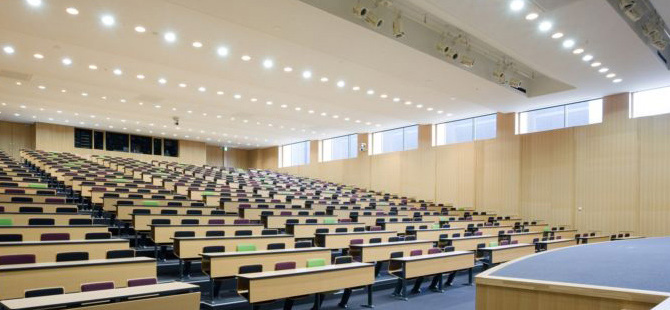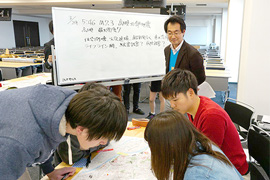- Faculty Overview
- About Faculty of Societal Safety Sciences (FSS)
- Philosophy and Purpose of Establishment
- Curriculum
- Message from the Dean
Philosophy and Purpose of Establishment

Japan often suffers damage from natural disasters, such as earthquakes, typhoons, volcanic eruptions, due to its geographical and natural conditions. As such, the promotion of disaster risk reduction measures is one of the most important tasks for local governments as well as the national government.
In recent years, events directly threatening lives, including transport accidents, accidents of household electrical appliances, nuclear power plant accidents, and food safety problems, have been on the rise. The times have been strongly needing human resources with advanced expertise and practical skills in order to realize a society where people can live safely and securely.
In quick response to the needs of the times, Kansai University established the Faculty of Societal Safety Sciences in April 2010.
It focuses on two themes, natural disasters, and social disasters(man-made disasters), and approaches themes, such as food safety, health risks, and environmental issues that have drawn attention in recent years.
In addition to discussing ways to prevent disasters and accidents and to minimize the damage that may result from them, students will also learn policy planning and system creation to work on these problems with various stakeholders. The Faculty of Societal Safety Sciences aims to train human resources capable of demonstrating leadership in diverse fields, including local governments and enterprises as well as the national government.
Philosophy and Purpose from Viewpoints of Educational Research
Problems related to human safety and security extend to a wide range of issues, such as natural disasters, accidents, environmental destruction, food safety, diseases (including infectious diseases), crime, international terrorism, and information security issues.
Among them, two pillars addressed by the Faculty of Societal Safety Sciences are problems of natural disasters and accidents, both of which causally link to the safety and security of the people’s lives and are becoming a major social problem. In addition, the Faculty deals with various other issues, including food safety, health risks, and environmental risks, in which the public is also highly interested.
In this Faculty, these problems are integrated with existing disciplines, such as law, politics, economics, business administration, psychology, sociology, physics, informatics, engineering, and social medicine.
In addition to working on the accumulation and systematization of the knowledge of safety, the Faculty will foster human resources who can contribute to building a safe and secure society and respond to society’s great expectation of creating a safe and secure community.

Training Human Resources
The Faculty of Societal Safety Sciences develops human resources with advanced information processing capability in order to plan and practice policies for the prevention and mitigation of disasters, prevention of accidents, as well as the creation of crisis management so they can contribute to society.
To be concrete, the Faculty develops the following abilities of students:
- 01
- Ability to comprehend regional and social safety issues and develop and practice measures for problem resolution.
- 02
- Ability to understand the mechanism of safety maintenance and succession, measures to secure safety, and ability to coordinate experts and engineers in different fields (i.e., technoliteracy to communicate with experts in various fields).
- 03
- Ability to communicate with foreign people in English to solve safety problems.
The Faculty nurtures human resources capable of realizing safety and security through comprehensive planning and proposals for regional, national, and international safety issues with abovementioned abilities.